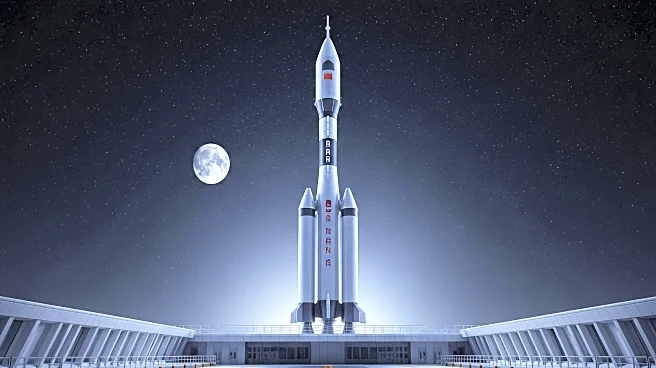What's Happening?
Beijing-based Galactic Energy has successfully raised $336 million in Series D financing, marking China's largest disclosed funding round for a launch startup. The funds will support the development and testing of the Pallas series of reusable liquid propellant launchers and the Ceres-2 solid rocket. Galactic Energy, founded in 2018, has established a reputation for reliability with its Ceres-1 solid rocket and aims to expand its capabilities with the Pallas-1 and Pallas-2 rockets. The Pallas-1 is designed to carry 7,000 kilograms to low Earth orbit, while the Pallas-2 is expected to handle up to 58,000 kilograms. The investment reflects strong state and provincial support, with contributions from government-backed funds and industry-oriented investors. This development is part of a broader trend of significant investment in China's commercial space sector, which has been designated as a strategic industry for growth by the central government.
Why It's Important?
The funding secured by Galactic Energy underscores China's commitment to advancing its commercial space capabilities. This investment not only supports the development of new rocket technologies but also strengthens China's position in the competitive global space industry. The involvement of government-backed funds highlights the strategic importance of space exploration for China's economic and technological ambitions. As Galactic Energy prepares for test launches, the company is poised to contribute to national projects like the Guowang broadband megaconstellation, which is driving increased launch activity. The success of Galactic Energy could lead to more contracts and collaborations, further integrating China's commercial space sector into global markets.
What's Next?
Galactic Energy plans to conduct orbital test flights for its Pallas-1 and Ceres-2 rockets in the near future. The Pallas-1 rocket's second stage has already undergone a successful static fire test, with further tests scheduled before its first orbital flight. The Ceres-2 rocket, designed to carry heavier payloads, is set for launch soon, carrying six satellites. These developments are expected to enhance Galactic Energy's capabilities and attract more contracts, particularly for national projects like the Guowang megaconstellation. The company's progress will be closely monitored by industry stakeholders and could influence future investments in China's commercial space sector.
Beyond the Headlines
The strategic focus on commercial space exploration reflects China's broader ambitions to become a leading player in the global space industry. The emphasis on reusable rocket technology aligns with global trends towards sustainable and cost-effective space exploration. Galactic Energy's advancements could pave the way for increased international collaboration and competition, potentially reshaping the dynamics of the space industry. The company's success may also inspire other startups and drive innovation within China's burgeoning space sector.










